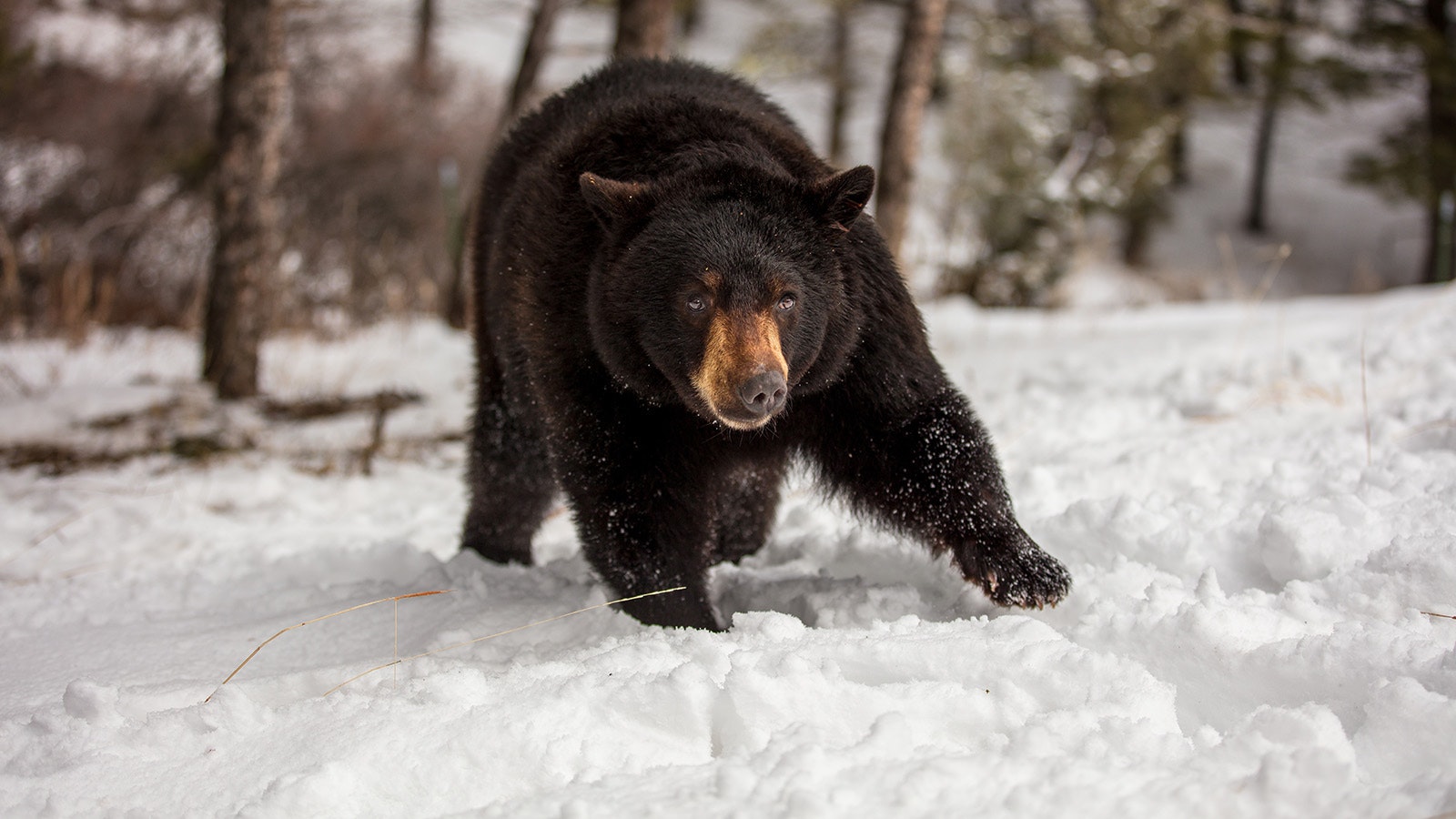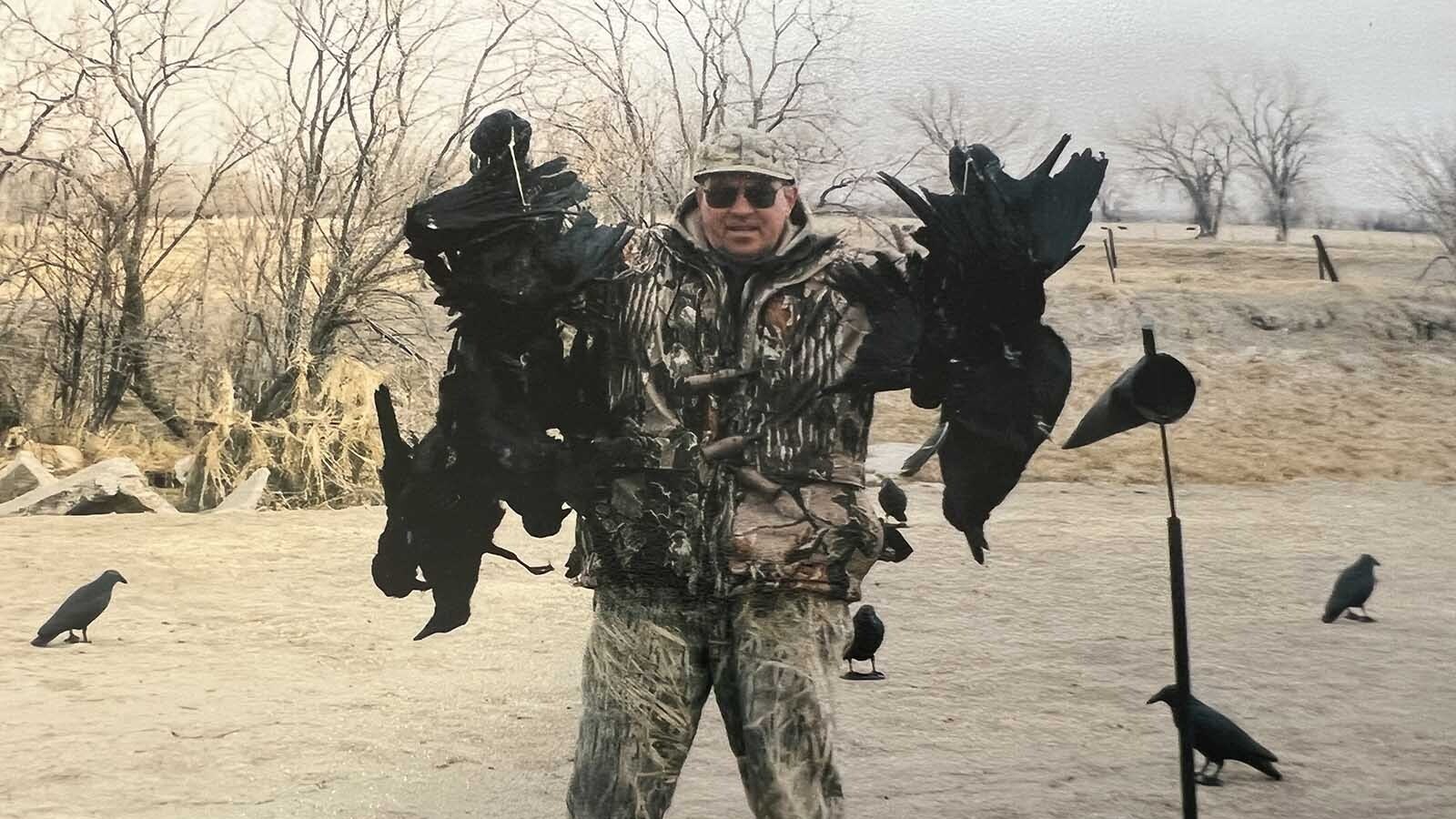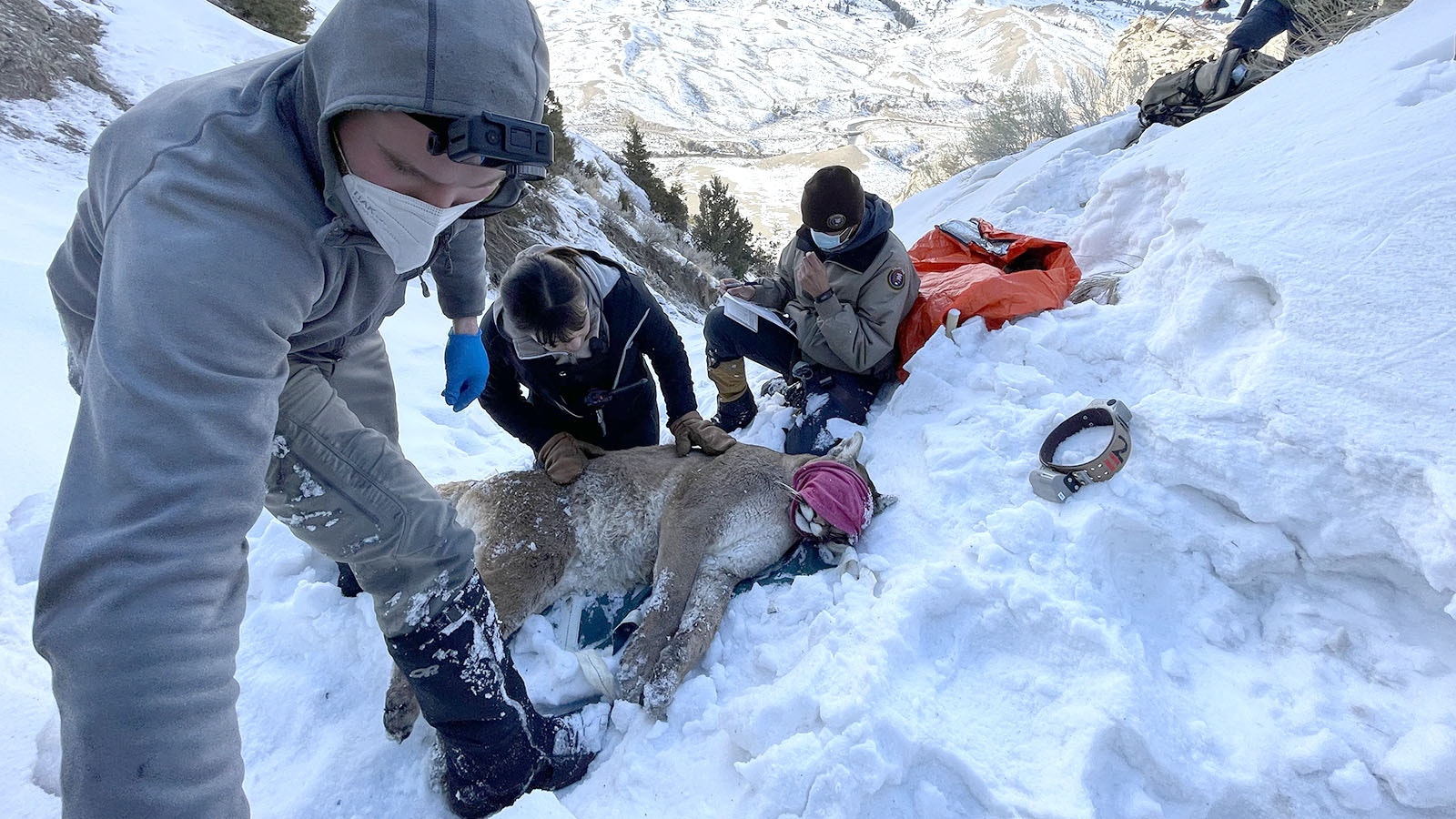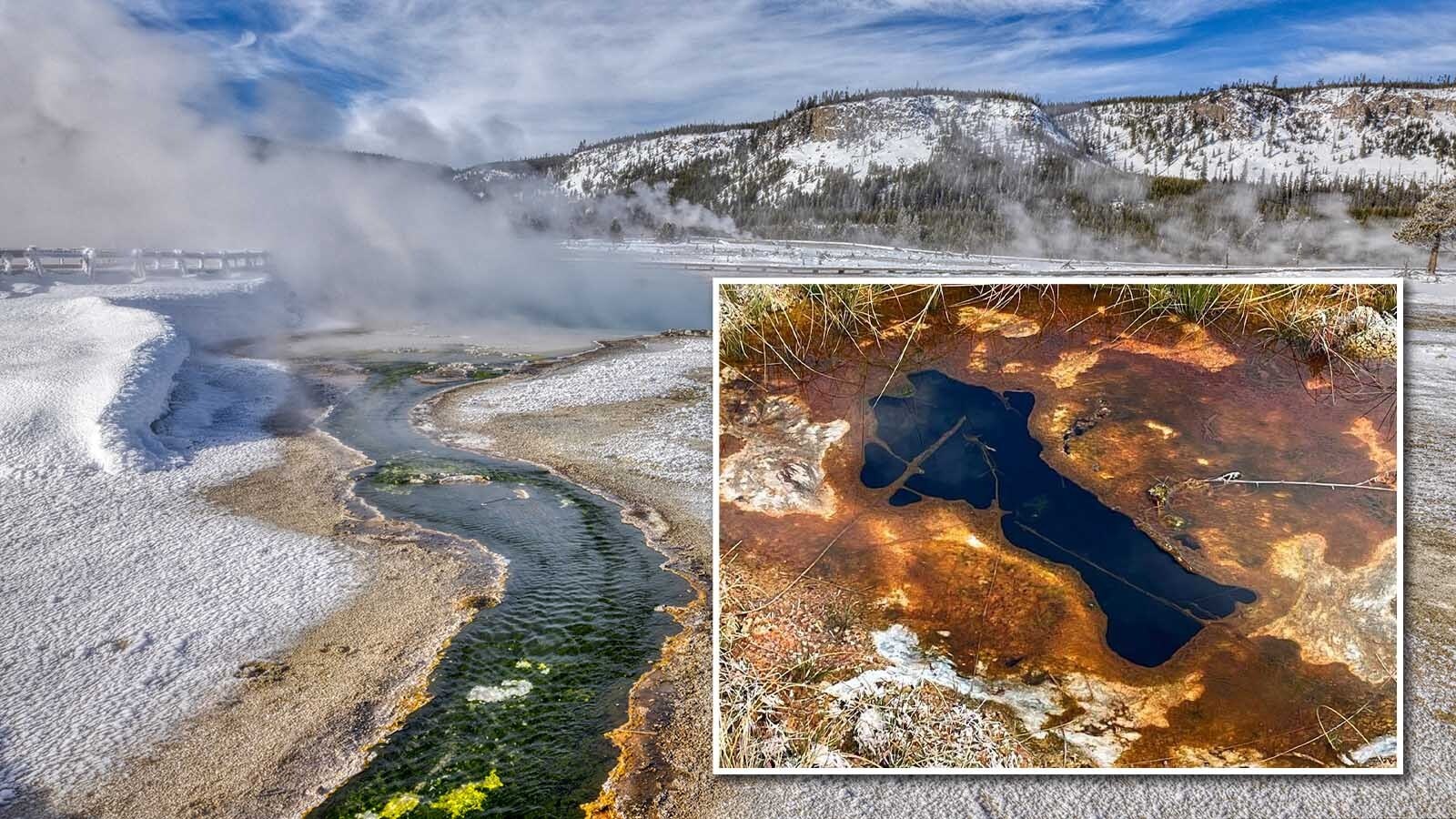Despite being blasted with an entire can of bear spray, then being pummeled with the empty can by a hiker desperate to save his dog, a black bear in Canada still killed the pet and carried its carcass off.
It was a shocking, but extremely unusual attack, the likes of which probably won’t happen here, Wyoming, Colorado and Montana wildlife officials told Cowboy State Daily. But it’s still an object lesson how black bears can be aggressive and unpredictable.
The bear likely attacked because it was hungry, said retired U.S. Fish and Wildlife Service biologist Chris Servheen of Missoula, Montana.
The bear “already had the dog in his mouth. He was very concerned about getting something to eat and was willing to put up with a lot of abuse to keep the dog,” Servheen said.
‘Holy Crap’
Wyoming Game and Fish Department large carnivore specialist Dan Thompson said it was jarring to read about the attack.
“My honest initial response from reading that was, ‘Holy crap,’” Thompson said, adding that Canadian wildlife agents did the right thing by promptly tracking down the bear, a 204-pound male, and killing it.
“I'm sure those professionals are taking some heat for properly dealing with that circumstance, but that kind of behavior is not something that can be tolerated and wanes tolerance for black bears in general,” Thompson said.
The Colorado Parks and Wildlife Department also has a zero-tolerance policy regarding black bears that are aggressive toward humans, agency spokesman Joey Livingston told Cowboy State Daily.
Simply attacking a pet, but not directly threatening people, wouldn’t warrant killing the bear, according to CPW protocol, he said.
But like Servheen and Thompson, he stressed that black bears typically don’t attack.
“It is very rare for black bears to become aggressive toward people or pets, and usually some human-provided food source is involved,” he said.
A Pattern Of Aggression?
In this case, people were hiking with two dogs in Jasper National Park in Alberta on Saturday when the bear approached them, according to reports from the Parks Canada Agency.
The dogs were off leash, and the bear initially bolted when one of the dogs chased it.
The tables turned, and the dog came running back toward its owners with the bear on its heels, Parks Canada reports. When the second dog started barking at it, the bear attacked, grabbing one of the dogs in its jaws.
One of the hikers emptied a can of bear spray at close range, and when that didn’t work started pummeling the bear with the empty can. That also didn’t work, and the bear carried the dog off into the woods.
Wildlife agents tracked the bear down and killed it the next day and discovered that it had stashed the dog’s carcass nearby.
It’s not the first time there’s been concern about black bear attacks in Canada.
Retired Canadian wildlife agent Murray Bates wrote last year that during his 34-year career, he’s seen an uptick in aggression, including instances of black bears hunting down, killing and eating humans.
There’s been no such pattern of black bear aggression in Wyoming or across the American West, wildlife officials told Cowboy State Daily at the time.
Seeing Pups, Or People, As Food
The most recent fatal black bear attack in this region was in spring 2021, when Laney Malavolta, 39, was killed by a female black bear with two yearling cubs near Durango, Colorado.
Her body was partially eaten, according to reports.
Black bear attacks are almost always driven by hunger Servheen said, adding that grizzly bears usually attack because somebody startled them.
He was the Greater Yellowstone grizzly bear recovery coordinator for the U.S. Fish and Wildlife Service for 35 years prior to his retirement in 2016 and is now the board chair and president of the Montana Wildlife Federation.
But aggressive black bears are after a meal, Servheen said.
“Most attacks by grizzlies are because of surprise encounters with people,” he said. “When black bears attack, it’s not because they’re surprised, it’s because they’re looking for something to eat.”
However, black bear attacks are a vanishingly rare anomaly, he said.
“You’re much more likely to be struck by lightning than to be attacked by a black bear,” he said.
That’s despite the fact that the odds of encountering a black bear are far greater than those of meeting a grizzly in the wild, Servheen said.
There are an estimated 40,000 to 50,000 grizzlies in North America, compared to as many as 900,000 black bears, he said.
Pooches Can Cause Trouble
CPW urges people to keep dogs on leashes in bear country, Livingston said, because that’s safest for dogs, people and bears.
Servheen agreed it’s best to keep dogs leashed, or at least under direct control, when out in the wild.
The dog running back toward its owner, with the bear in tow, during the attack in Canada is a classic example of what can go wrong, he said.
“If your dog is out there ranging around and it tangles with a bear – black bear or grizzly – the dog’s reaction is going to be to run back to you, and he’s going to bring the bear right back to you,” Servheen said.
Mark Heinz can be reached at mark@cowboystatedaily.com.





